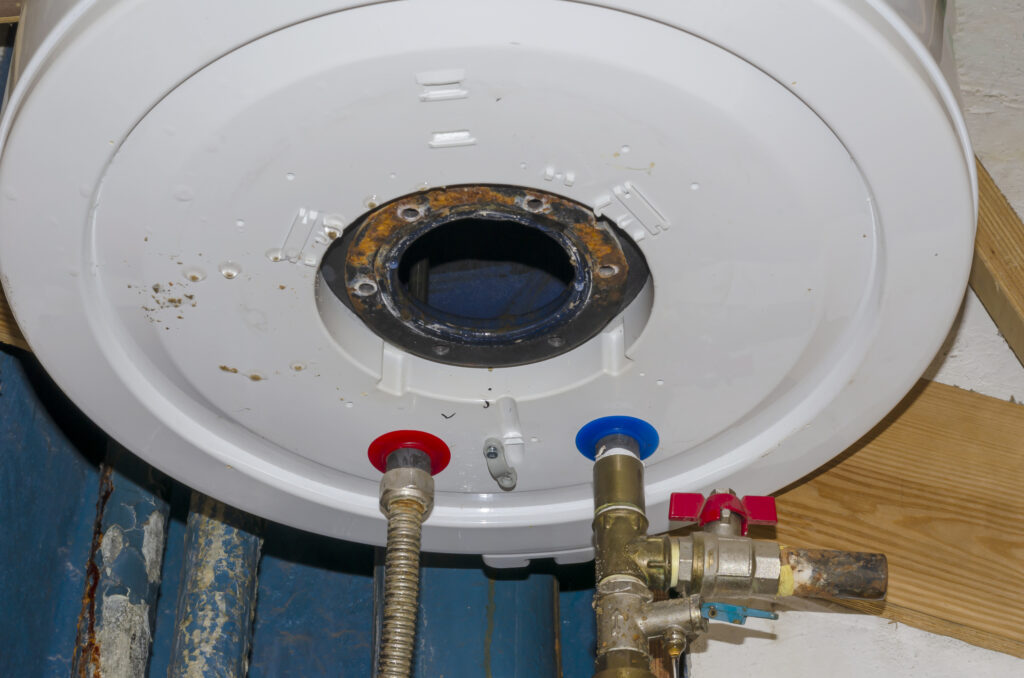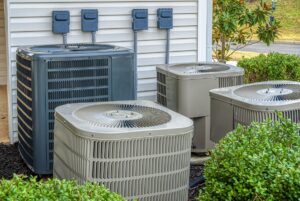If you’re thinking about getting an air conditioner for the summer, you might be wondering whether to get a central A/C unit or one or more window units. There are several things to consider when making your decision.
While you may have control over some of the issues to think about, others may be out of your hands. Here’s a rundown of what you need to think about before making your purchase.
A look at the pros and cons of each option will help you decide which is best for your home and your budget.
There Are Two Main Factors You Need to Look at When You Intent to Buy an Air Conditioner
The two major factors you’ll want to keep in mind are cost and efficiency.
Cost
By cost we don’t just mean the initial cost of purchase and installation, but also the cost to operate the unit over its lifetime.
Window air conditioners are generally less expensive to purchase than central units. However, it can be more expensive to buy and maintain several window units. In general, you should opt for a unit that will not upset your bank balance in the long run.
Efficiency
When it comes to AC, efficiency means how adequately an air conditioner fulfills its duties. This refers to the unit’s size and how well it cools your home without taking up too much energy.
The bigger your space and the hotter your climate, the more powerful and efficient your AC needs to be. Let’s compare the two main types of air conditioners to see which is better for different needs.
Central A/C
The central A/C acts like a big refrigerator. It cools down and regulates the temperature of your entire house by using a large compressor. This type of unit is generally more expensive than the window version, but it will save you money in the long run because it’s more energy-efficient. The cost of a central air conditioner ranges from $1,800 to about $11,000 depending on size.
Using a cooling agent known as a refrigerant (for example Freon}, the central AC unit extracts heat from your home and expels it through a series of ducts. These ducts are connected to vents in each room, which is how the cool air is circulated throughout your house.
With the aid of thermostats, one central air conditioner can maintain a comfortable temperature throughout your entire home. The thermostats work by sensing the temperature in each room and turning the AC on or off accordingly.
Pros of Central Air Conditioners
Consistent Room Temperatures: One of the main advantages of a central air conditioner is that it can maintain consistent temperatures in all rooms. This is because the AC unit cools the entire house at once, rather than having to cool each room individually like with window units. This is particularly useful in hot climates where temperatures can vary greatly from room to room depending on the direction they face.
Automation: Modern central air conditioners come with a variety of features that make them even more efficient and convenient to use. These features include timers, energy-saving modes, and the ability to be controlled remotely via a smartphone app.
Better Air Quality: Another plus of central air conditioners is that they improve the quality of air in your home by circulating and filtering it. This is especially beneficial for people with allergies or respiratory problems. Most central air conditioners possess inbuilt filters that filter your indoor air before releasing it into your home. Modern air conditioners have both micro-particle filters and dehumidifiers that further improve air quality.
Quiet Operation: Central AC units are designed to be as quiet as possible. This is in contrast to window units, which can be quite noisy. If you’re looking for a quiet air conditioner, then central AC is the way to go.
Air Cooling And Heating Combination: Modern central air conditioners also have the ability to heat your home in winter. This is done by reversing the refrigerant flow, which extracts heat from the outside air and circulates it indoors. If you live in a city that experiences cold and hot seasons, you no longer need to purchase an electric heater. This way, you save the money you would have spent on the purchase and maintenance of the heating unit.
Cons of Central Air Conditioners
Central air conditioners also have a few disadvantages. These include:
High Initial Cost: The biggest downside of central air conditioners is their high initial cost. Not only do you have to pay for the unit itself, but you also need to factor in the cost of installation. This can be quite expensive, especially if you need to install ductwork in your home.
While a good quality central air conditioner costs between $1,500 and $10,000, a window unit typically cost between $300 and $1,500. If you intend to cool more than 5 rooms, one central AC unit will be cheaper long term than having 5 window units.
So, while you may save money in the long run with a central AC unit, the upfront cost can be a deterrent for many people.
Installation Issues: Another potential downside of central air conditioners is that they can be difficult to install. This is particularly the case if you need to install ductwork in your home, which can be a complex and expensive process. You’ll also need to have your air ducts cleaned and maintained once or twice yearly to ensure they’re working properly. A properly installed ductwork will however increase the value of your property.
In addition, you’ll need to hire a professional HVAC contractor like Robert B. Payne for your central AC installation. This can add to the overall cost of the project. It’s also worth noting that central air conditioners are generally quite large and bulky, so you’ll need to make sure you have enough space to store the unit. If you live in a rented home or apartment, you may not be able to install a central air conditioner.
Window Unit Air Conditioners
Window units are the cheapest type of air conditioner. They are small, compact, and easy to install, making them a great option for people on a budget. They are installed on walls or windows and each unit only cools one room.
An average window unit costs $300. The price varies from $100 to $1,000 depending on the size and brand of the unit.
Pros of Window Units
Cost: The biggest advantage of window units is their cost. They are much cheaper than central air conditioners, both to purchase and to install. With just a few hundred dollars, you can purchase a high-quality window unit that will last for years. But don’t go for something too cheap as the quality will be poor and it may not last long.
Easy to Install: Window units are also much easier to install than central air conditioners. In most cases, a professional HVAC technician can install them in just a few minutes. Insulating the window during installation will further reduce the amount of heat that escapes from your home.
Note that you’ll need to have a window or wall that’s big enough to accommodate the unit. If you don’t have an appropriate window, you may need to hire a contractor to cut a hole for the unit.
Energy Efficient: Window units are energy efficient. They use less electricity to operate, which can save you money on your energy bills. You can also manually switch off the unit when you’re not using it. Plus, by purchasing an Energy-Star Certified unit, you can be sure that your window unit is designed to minimize energy consumption.
Portable: Window units are portable, so you can take them with you if you move to a new home. This is especially convenient for renters who may not be able to install a central air conditioner in their rental property.
Air Cooling And Heating Combination: Modern window air conditioners are also capable of providing both cooling and heating. This is a great feature if you live in an area with hot and cold seasons. You can use the unit to cool your home during the summer and then switch it over to heating mode when the temperature drops in the winter.
Cons of Window Units
If you’re buying more than 5 window units, they will eventually be more expensive than a central unit. A window unit can also only serve one room at a time.
Security Risk: One potential downside of window units is that they can be a security risk. If you live in a safe neighborhood, this probably won’t be an issue. But if you live in an area with a high crime rate, criminals may see your window unit as an easy way to break into your home. Window units are also easier to steal.
To prevent this, make sure to secure the unit properly. You can do this by installing grilles or bars over the window.
Installation Issues: While window units are easy to install, you’ll need to make sure the unit is properly sealed around the edges. Otherwise, air will escape from your home, negating the cooling effect of the unit. In addition, if the unit is not properly installed, it can fall and break, which can be a safety hazard. You also lose a window. This is an issue if it is the only window in the room.
Noise: Window units can also be quite noisy. The compressor makes a lot of noise when it’s running, so if you’re looking for a quiet air conditioner, a window unit is not the best option.
Our Take on Central Air Conditioners vs Window Air Conditioners
If you need cooling or heating for several rooms or a whole building, then a central air conditioner is the best option. But if you’re looking for a cheap and easy way to cool just one room, then a window unit is a good choice. Just make sure to install it properly to avoid any problems.
Contact Robert B. Payne For All Your HVAC Needs!
Window air conditioners are a great option for those looking to cool a single room, as they are relatively inexpensive and easy to install. Central air conditioners are better suited for cooling multiple rooms or an entire building, but they can be more expensive and difficult to install. If you’re not sure which option is best for you, contact Robert B. Payne at 540-373-5876! We’ll be happy to help you choose the right air conditioner for your home.
Frequently Asked Questions
Which is cheaper to run, a central air conditioner or a window air conditioner?
If you need to cool a single room, a window air conditioner is typically cheaper to run than a central air conditioner. On the other hand, a central air conditioner is more efficient if you need to cool multiple rooms or an entire building.
Will a window unit help my central AC?
While you can use a window air conditioner to supplement your central air conditioner if you need to cool multiple rooms or an entire building, it may not be the best solution. It may be better to use your thermostat’s circulation setting.
Do window air conditioners use more electricity than central air conditioners?
A window air conditioner uses less energy than a central air conditioner. An average window unit can use about half as much electricity as a central unit.
Will a single window air conditioner cool a whole house?
A single window air conditioner can cool a small home or apartment, but it will not be as effective as a central air conditioner. If you need to cool multiple rooms or an entire building, we recommend using a central air conditioner.
How long do window air conditioners last?
Window air conditioners typically last around 10 years with proper maintenance. Central air conditioners have a lifespan of 15-20 years.






